On Wednesday, the U.S. Department of Energy (DOE) announced that $9 billion in funding will be available for states and Tribes from the Inflation Reduction Act (IRA) for consumer home energy rebate programs. This funding will allow communities to make homes more energy efficient, upgrade to electric appliances, and make other improvements, such as increasing insulation levels, to reduce energy use.
DOE projects that the historic home electrification and consumer rebates authorized will save an estimated $1 billion annually.
What’s Covered
IRA programs will include the installation of clean energy equipment such as heat pumps that will lower energy use and homeowner costs, decrease dependence on fossil fuels, and help meet the Biden Administration’s goals of weatherizing 2 million U.S. homes. The administration also hopes to cut greenhouse gas emissions by half by the decade’s end.
“As energy prices remain high, the administration is working to cut costs for working families and businesses through historic investments for consumer rebates for more efficient home improvements and energy-efficient appliances nationwide,” said Energy Secretary Jennifer M. Granholm.
Through a combination of tax incentives and investments to bolster consumer home energy rebate programs, the $9 billion in funds will be made available to states and Tribes. Particular focus will be made to low-income consumers to electrify home appliances and make other energy-efficient retrofits.
Programs that the states implement will include:
- Home energy performance-based, whole house rebates (HOMES Rebates) for energy efficiency, ranging from $2,000 – $4,000 for individual households and up to $400,000 for multifamily buildings.
- Grants to provide rebates for home retrofits of up to $2,000 for reducing energy use by 20 percent or more and up to $4,000 for retrofits saving 35 percent or more. The maximum rebate doubles for retrofits of low- and moderate-income homes.
- Development of a high-efficiency electric home rebate program with $225 million allocated to Tribes. This includes point-of-sale rebates administered by states and income-based means testing on a sliding scale.
- A $14,000 cap per household with an $8,000 cap for heat pump costs, $1,750 for heat pump water heater, and $4,000 for panel/service upgrades.
Other eligible rebates include electric stoves, clothes dryers, and insulation/air sealing measures.
DOE’s Office of State and Community Energy Programs works with state and local organizations to significantly accelerate the deployment of clean energy technologies, catalyze local economic development, and create jobs. SCHEP also helps reduce energy costs and pollution through location-based strategies involving a wide range of government, community, business, and other stakeholders.
Timeline for Implementation
While state and Tribal funding has been set aside, work must be done before funding is distributed. Beginning this month through January, DOE will hold listening sessions to engage stakeholders, including states, Tribes, labor, industry, and others on the consumer rebate programs. When the listening sessions have concluded, DOE will issue a Request for Information for public input in early 2023. The agency expects that the funding for states and Tribes will be available by Spring 2023, and the rebates will be available to the public later next year.
To view DOE’s full press state and see the states and territory’s allocation, click here.
